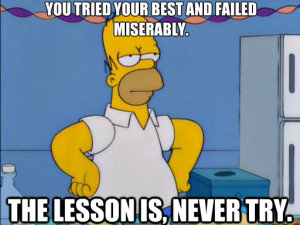A guest post by Travis Heermann.
That most hallowed and sought after milestone for authors pursuing the traditional publishing route—landing a literary agent—is not always the golden ticket we think it’s going to be.
I’ve had two literary agents, one of which was a soul-crushing scam and a complete debacle that derailed my career for several years. The second one was real, and it is the second one I will discuss here.
Any professional, agented author will tell you that the relationship between author and agent is like a romantic relationship. The author woos the agent with tantalizing words. The agent falls in love with the author’s book. The agent thinks this past the initial flush of excitement to whether the book is marketable, to who will buy it. And then, the agent decides whether to offer representation.
That email from the agent saying she wants to represent your baby—er, your novel—is one of those thrilling moments that fledgling authors yearn for, that penultimate moment of validation, second only to being offered a contract by the publishing house of one’s dreams. An industry professional, someone with contacts, someone who can make writers into stars, has taken notice and found your baby worthy.
So then, if all goes well, the agent will sell your novel, you’ll have a grand honeymoon, and it will make money for you both. And meanwhile you’re writing more novels for the agent to sell, etc., etc.
But the long haul of a relationship lasts way beyond the honeymoon.
Like romantic relationships, the agent/author relationship has infinite shades of forms, from distant business-only correspondence to bring-the-kids-over-for-Sunday-dinner relationships. It all depends on the people, their preferences, their capabilities.
And like romantic relationships, agent/author relationships often do not last. They fail for a variety of reasons, often because one feels the other is not fulfilling some need. Authors can have a lot of needs—artistic validation, editorial input, career promotion, sage advice from someone who’s supposed to know the business, and let’s not forget actually marketing the author’s work to editors who might be interested in buying it. Agents have needs, too—professional behavior from their clients, turning in quality manuscripts on time, maintaining that spark that made them fall in love with that first book.
And like failing romantic relationships, somebody has to decide when it’s over. Someone (the author) has to take a hard, objective look and consider whether those needs are being met. What happens then when the answer is No? It’s one of the scariest, agonizing, most heart-wrenching moments writers face, asking the question: “Should I stay or should I go?” For me, it was almost like dissolving a marriage.
I had a high-powered literary agent for several years, one of the big, established, reputable ones. My elation when he agreed to represent me launched me into the stratosphere. But he wasn’t able to place my novel as highly as he hoped. After three years of effort, he landed a couple of minor contracts, one for foreign translation, for which I am still grateful, but after that it became apparent that the honeymoon was over. And my agony when I finally came to the realization that he was no longer doing my career any good, when the accumulation of questionable advice and red flags built to such a volume I could no longer ignore it, when I realized it was time to move on, sent me hard into the earth like a meteor plowing into a cornfield. I had invested so many hopes and dreams in this relationship. The literary agent was supposed to usher me into the gilded ballrooms of literary success, but I was still stuck in stables. Without an agent, how could I even submit manuscripts to Big Publishing? I would be back to Square One.
Anyone who’s been through the dissolution of a long-term romantic relationship will recognize familiar thought patterns. Questions of self-worth (something writers already struggle with daily). “Will anyone else ever want me again?” Despair at how much emotional energy went crashing into the waste bin of life experiences. Grief at the loss of something once valuable. Memory of how much effort had been required to find an agent in the first place, so how on earth would I find another one?
And if one has kids (books) together, one had better make sure to get along with one’s Ex. The agent is still party to any contracts you signed together.
There’s no happy ending here, because the story is ongoing. I’m a writer pursuing a career, grinding through the trenches. I’m writing books and marketing them, without a literary agent. Would I engage a literary agent again? If the circumstances were right, certainly, but I’m not actively pursuing that route. I’m like the guy who’s given up on dating until the right woman comes along. Sometimes she does, sometimes she doesn’t.
The good news is that, like recovering from a failed relationship, you pick yourself up, dust yourself off, apply bandages, drink the obligatory allotment of whiskey and guilt, and move on, wiser from the experience.
Guest Writer Bio:

Freelance writer, novelist, award-winning screenwriter, editor, poker player, poet, biker, roustabout, Travis Heermann is a graduate of the Odyssey Writing Workshop and the author of the
Ronin Trilogy,
The Wild Boys, and
Rogues of the Black Fury, plus short fiction pieces in anthologies and magazines such as
Weird Tales, Historical Lovecraft, and
Shivers VII. As a freelance writer, he has produced a metric ton of role-playing game work both in print and online, including
Legend of Five Rings, d20 System, and the MMORPG, EVE Online. He enjoys cycling, martial arts, torturing young minds with otherworldly ideas, and zombies. He has three long-cherished dreams: a produced screenplay, a NYT best-seller, and a seat in the World Series of Poker.For interviews about the Writing Life, check out his Author Interview Series at the Ronin Writer:
http://travisheermann.com/blog/


